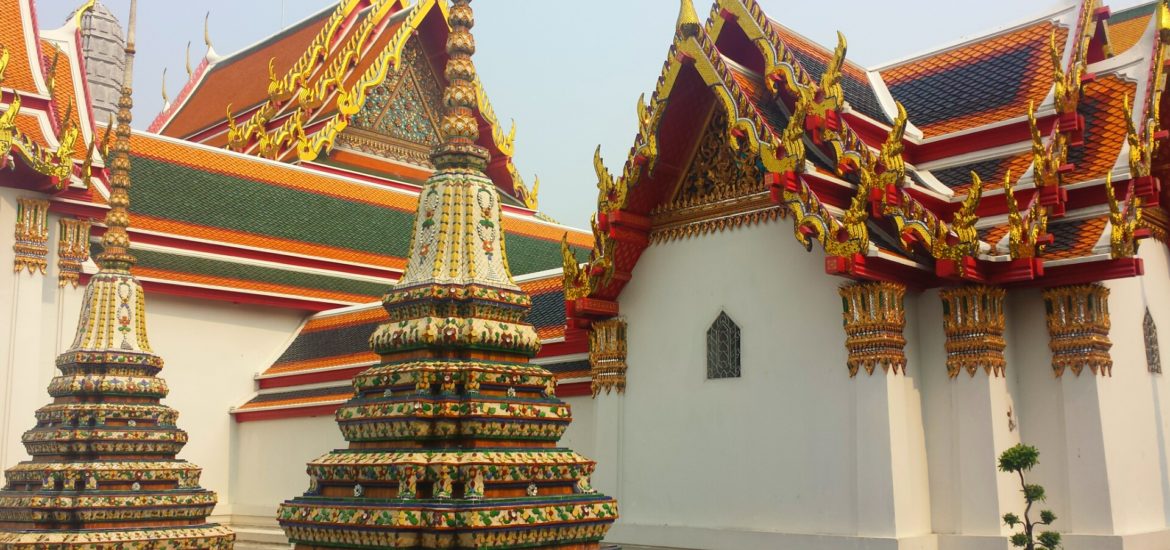This post contains affiliate links to products and or services. I may receive a small commission for purchases made through these links, but with no additional costs to you.
Known worldwide for its vibrant, rowdy and quite often sexually infused nightlife, delicious food, stunning landscapes, glorious beaches and friendly people, Thailand is also deeply proud of its customs and traditions.
Now, when I was in Thailand, I can say I saw it all. Drunk tourists on the streets, people shouting and acting disrespectful, people in handcuffs and don’t get me started on some of the despicable behaviour I witnessed at temples and other religious areas. *cringe*
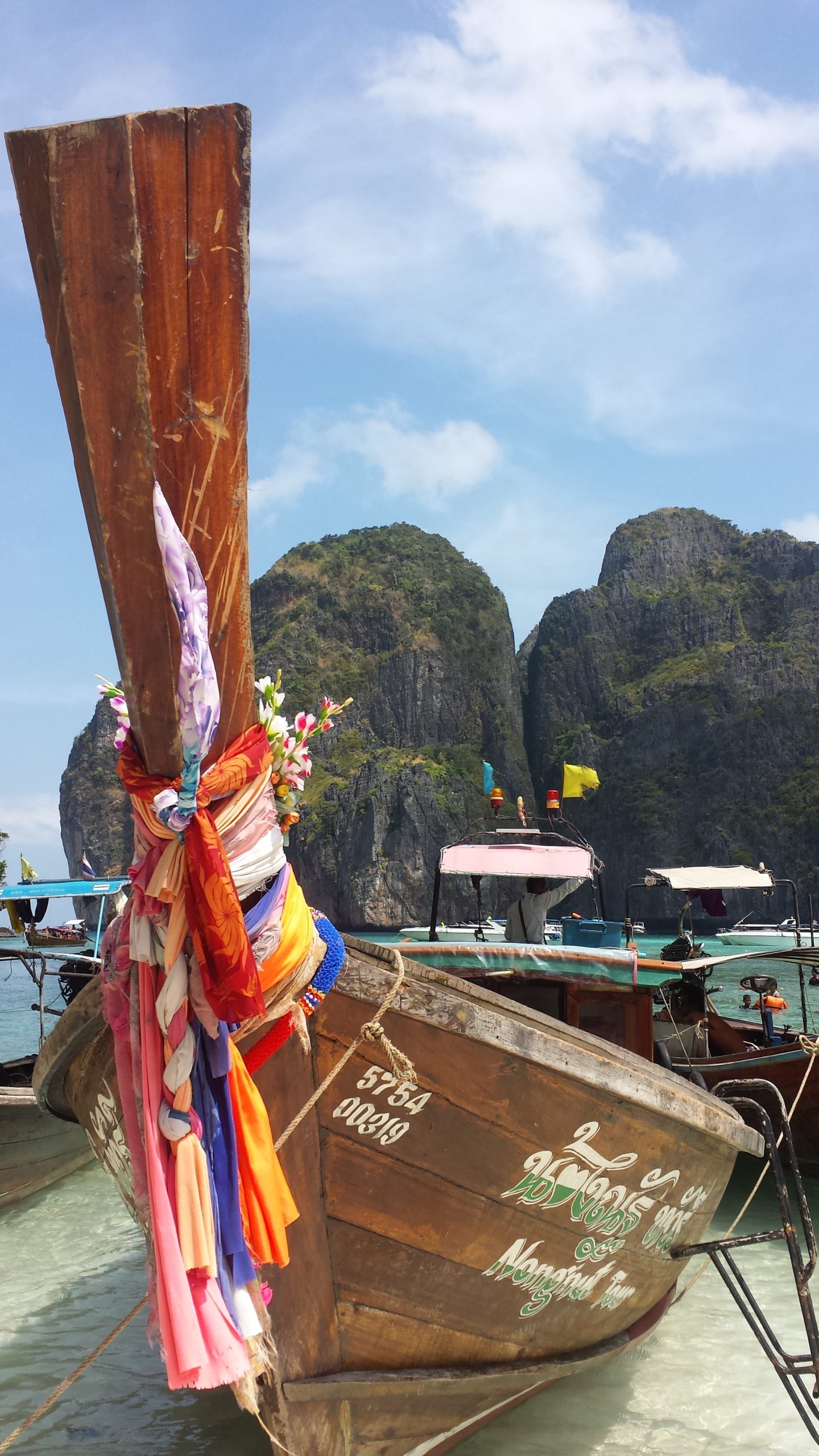

As a tourist in Thailand, you will gain the local’s respect and friendship quickly if you adapt some of your behaviours. Of course, it’s perfectly normal to feel awkward and nervous around new cultures, traditions, customs and as a responsible traveller, you definitely want to make a good impression.
No pressure, right?
Here are a few suggestions to consider before heading to the beautiful, tropical destination of Thailand and to help you avoid a potentially embarrassing, or highly offensive faux pas.

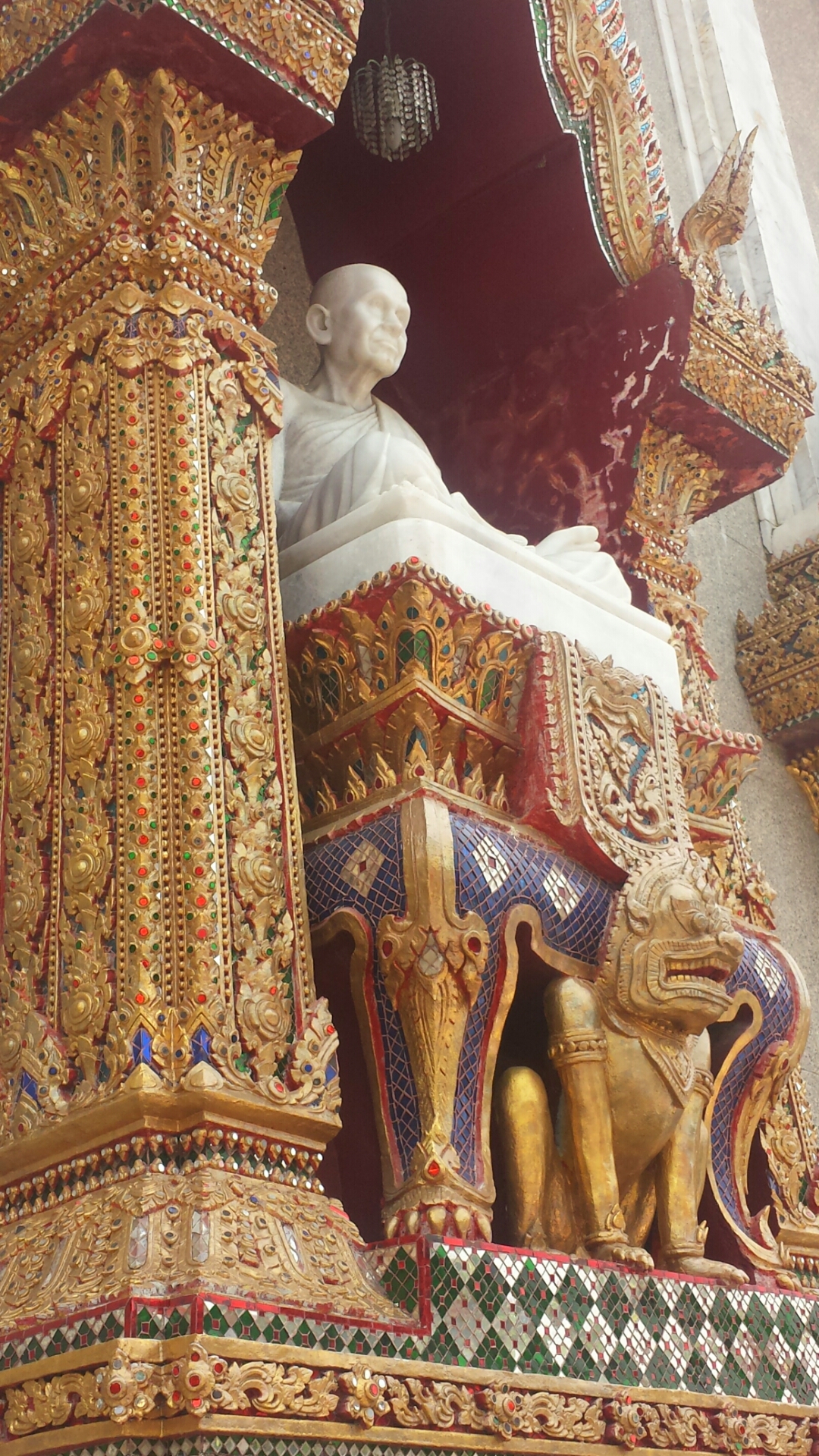

Read more: 12 Reasons Why You Must Visit Thailand
Do Dress Appropriately
Dressing provocatively in Thailand is a big no-no. Save the skin for the beach. Make sure to dress respectively while wandering around the country, especially if you decide to visit any Thai temples. Shoulders and knees must be covered for both sexes and the more conservatively you dress, the better. Yes, it will be hot outside and yes, it will be uncomfortable, but you may be turned away and denied entry if you’re showing too much skin. It is better to dress properly, than be denied entry and risk losing out on seeing inside a gorgeous temple, or worse, attract disrespectful stares from locals.
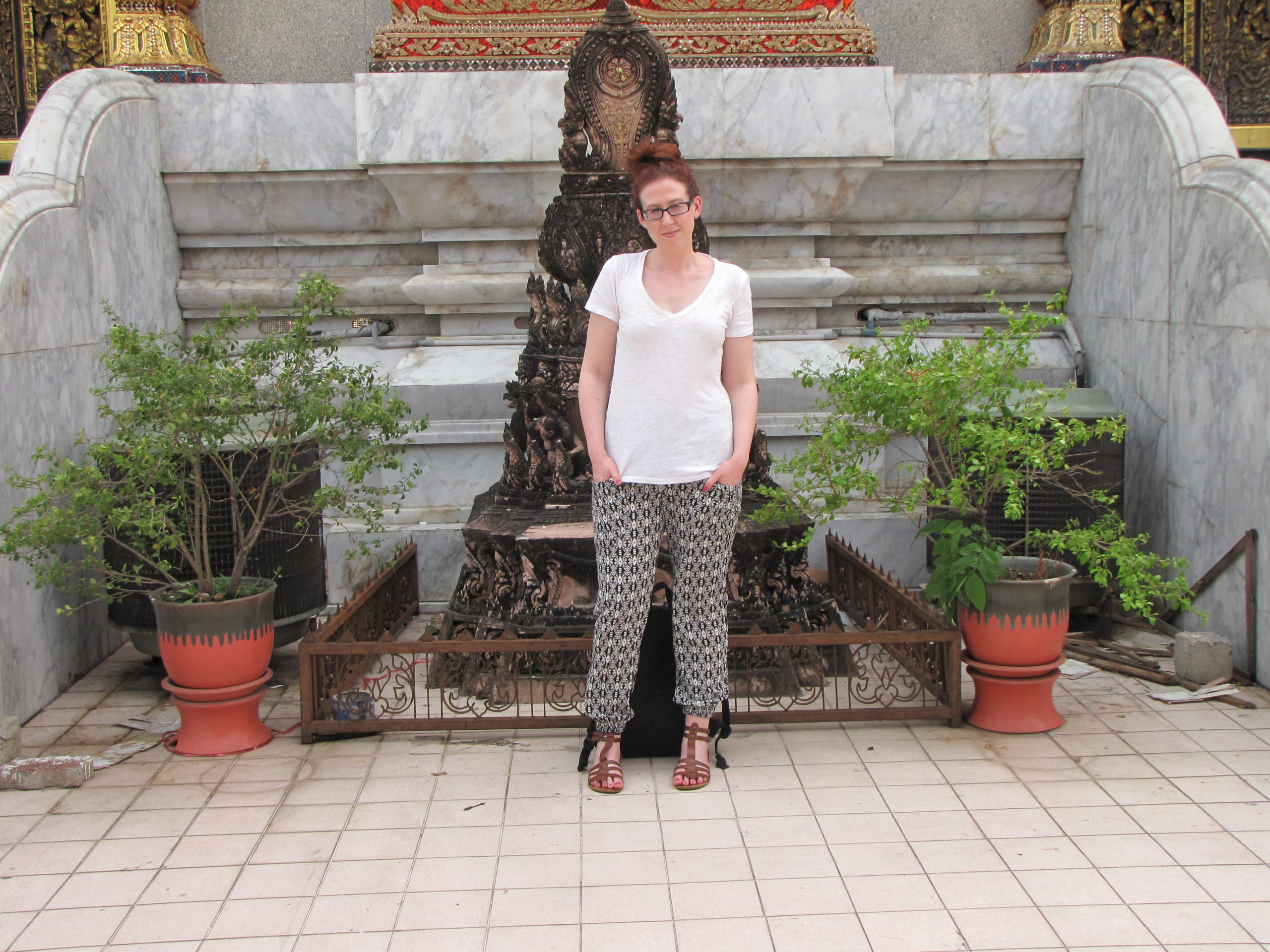

Do Respect The Monarchy
Thailand’s beloved monarchy is highly respected within Thai culture. It’s actually against the law and a serious offense to disrespect any members of the Royal family, past and present – journalists have even been threatened with expulsion for doing so. Another thing to note, you should also stand up when the Royal and National anthems are played.
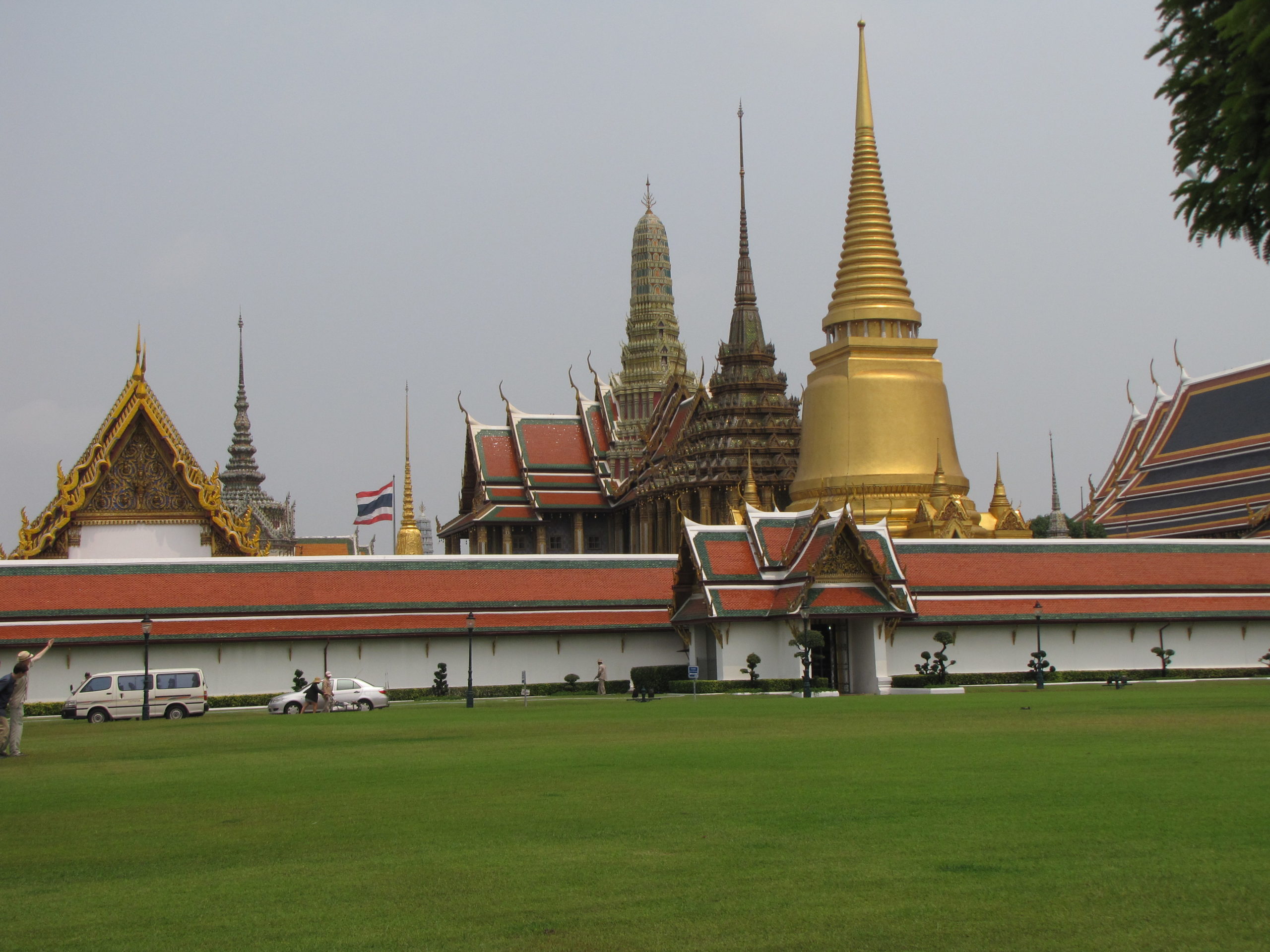
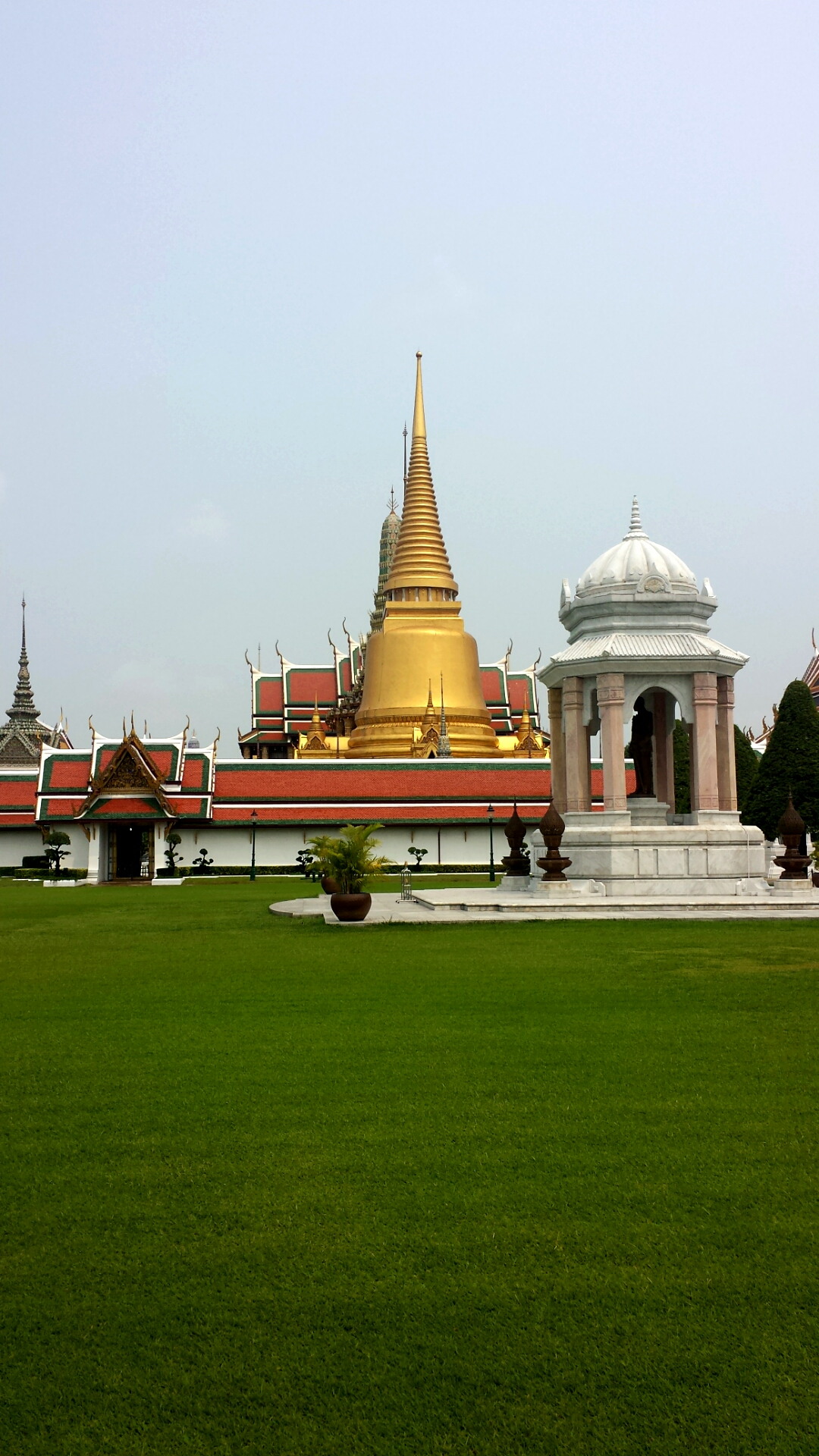
Read more: 25 Photos That Will Inspire You To Book A Trip To Thailand
Do Take Off Your Shoes
In Thailand, feet are considered dirty. You should always, always, ALWAYS remove your shoes before entering a temple or a person’s home. Some shops may even ask for you to leave your footwear at the door. Stories of pesky “shoe thieves” waiting outside of temples have increased, so perhaps wear some cheap flip flops rather than your best sandals. After entering a temple, remember the soles of your feet should never point towards a Buddha statue or symbol – instead, crouch down on your knees and tuck your feet behind you.
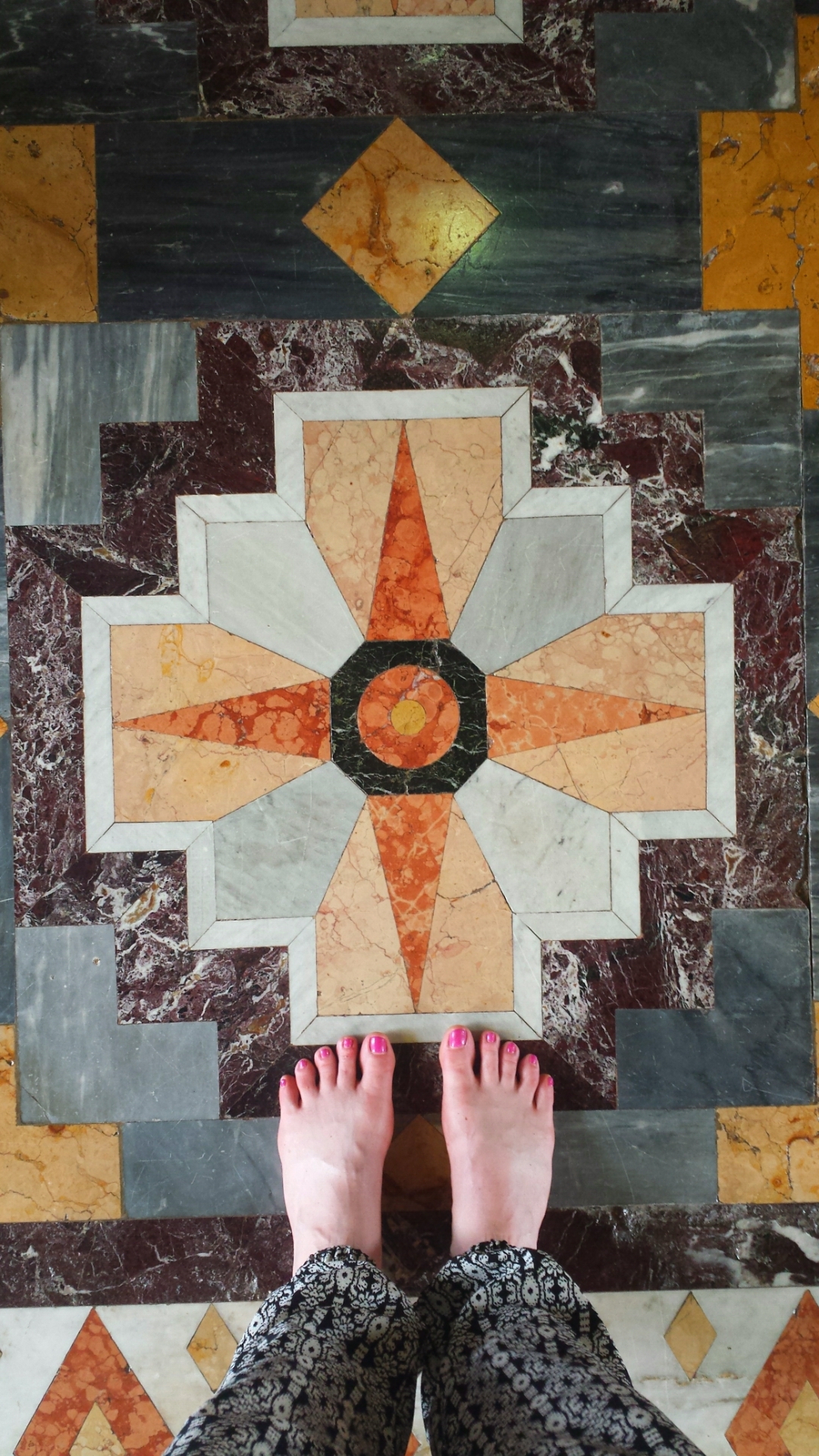

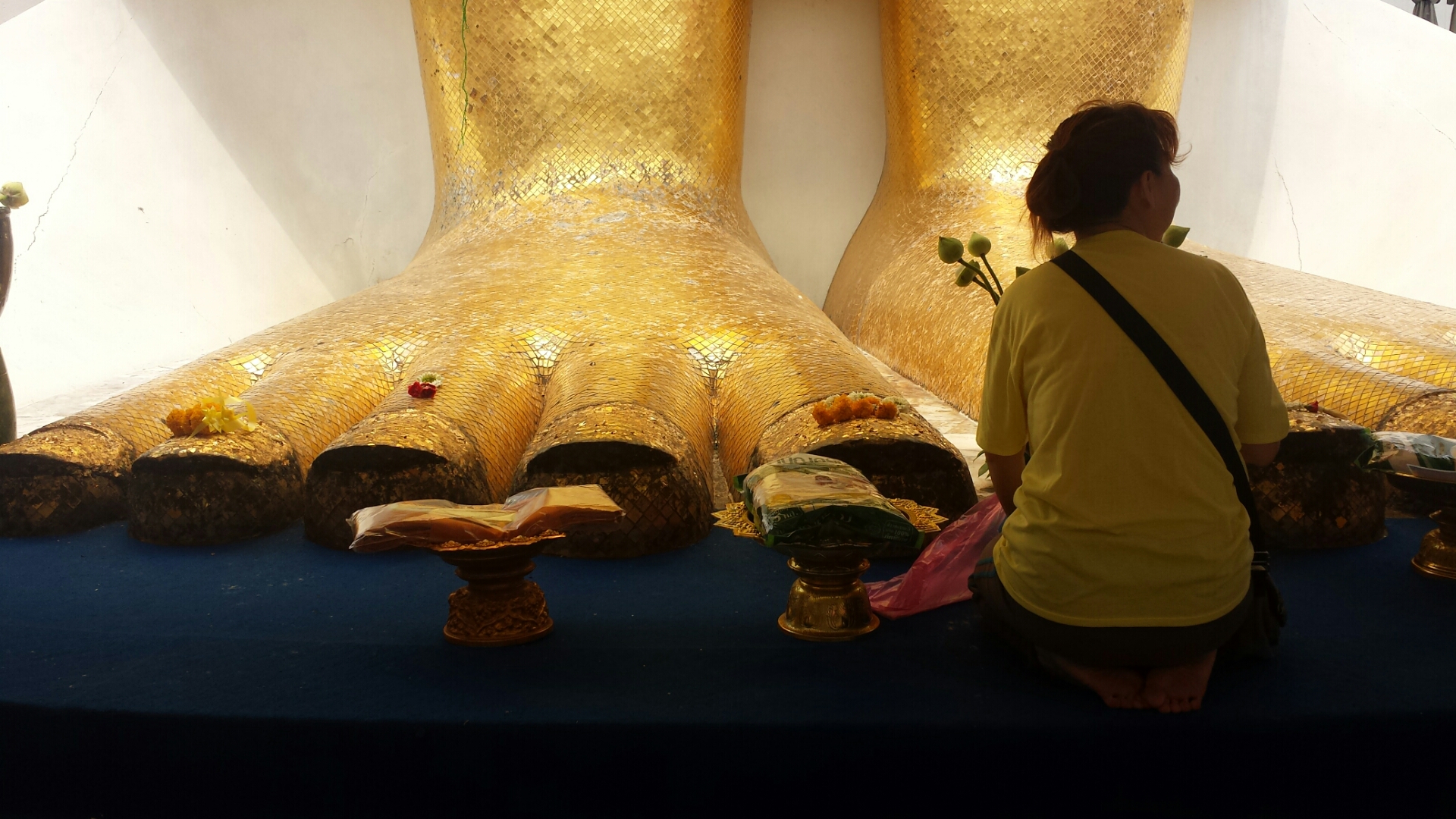
Don’t Turn Your Back Towards Buddha
For most foreign travellers, the most common offense committed inside of temples is to pose for a photo or selfie with back turned to a Buddha image. You may take photos of Buddha, but don’t take selfies with your back towards Buddha, as it is highly frowned upon. The correct way to walk away from a Buddha statue is to back up a good distance, then turn around to leave once a decent distance away from Buddha.
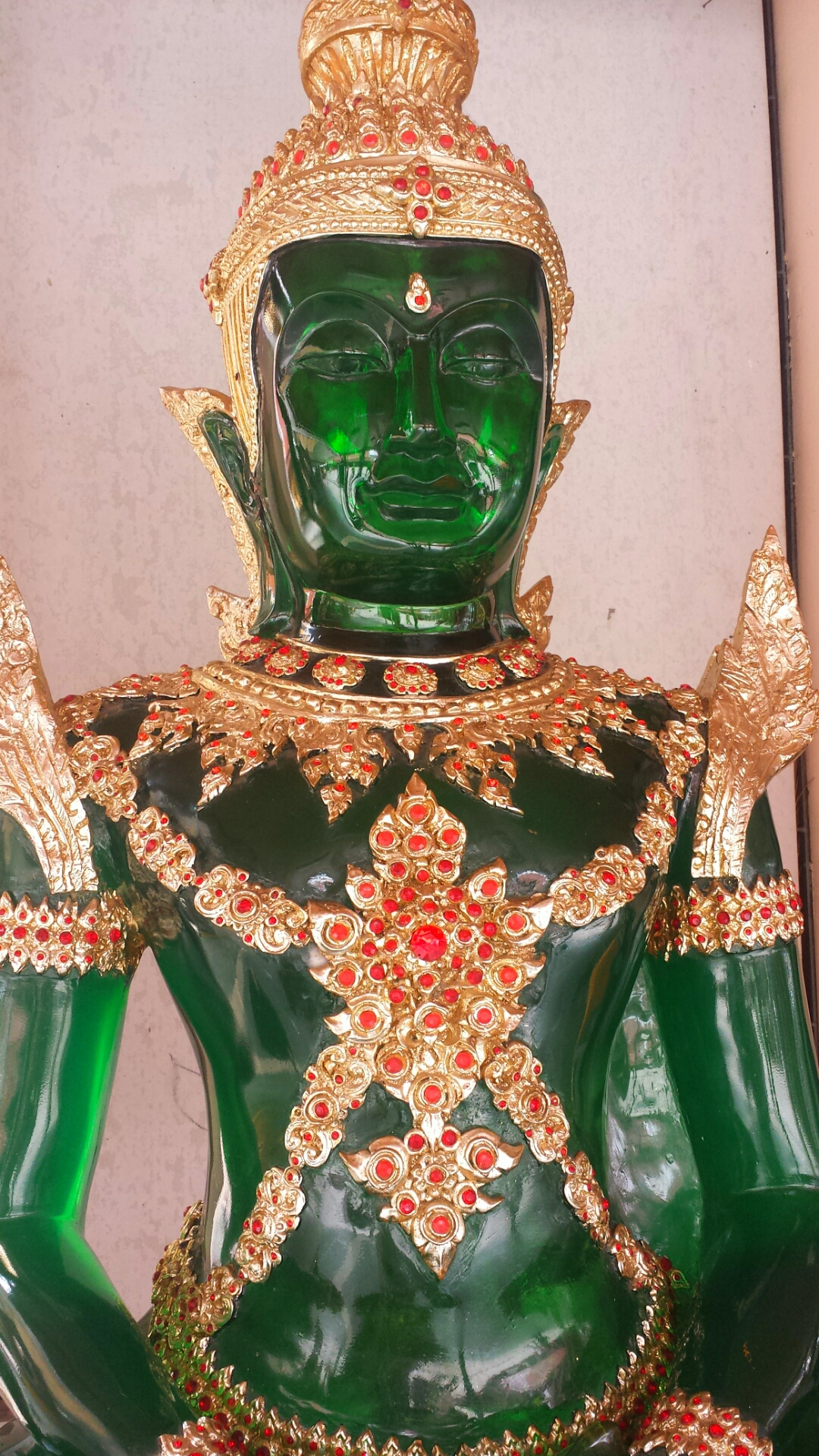
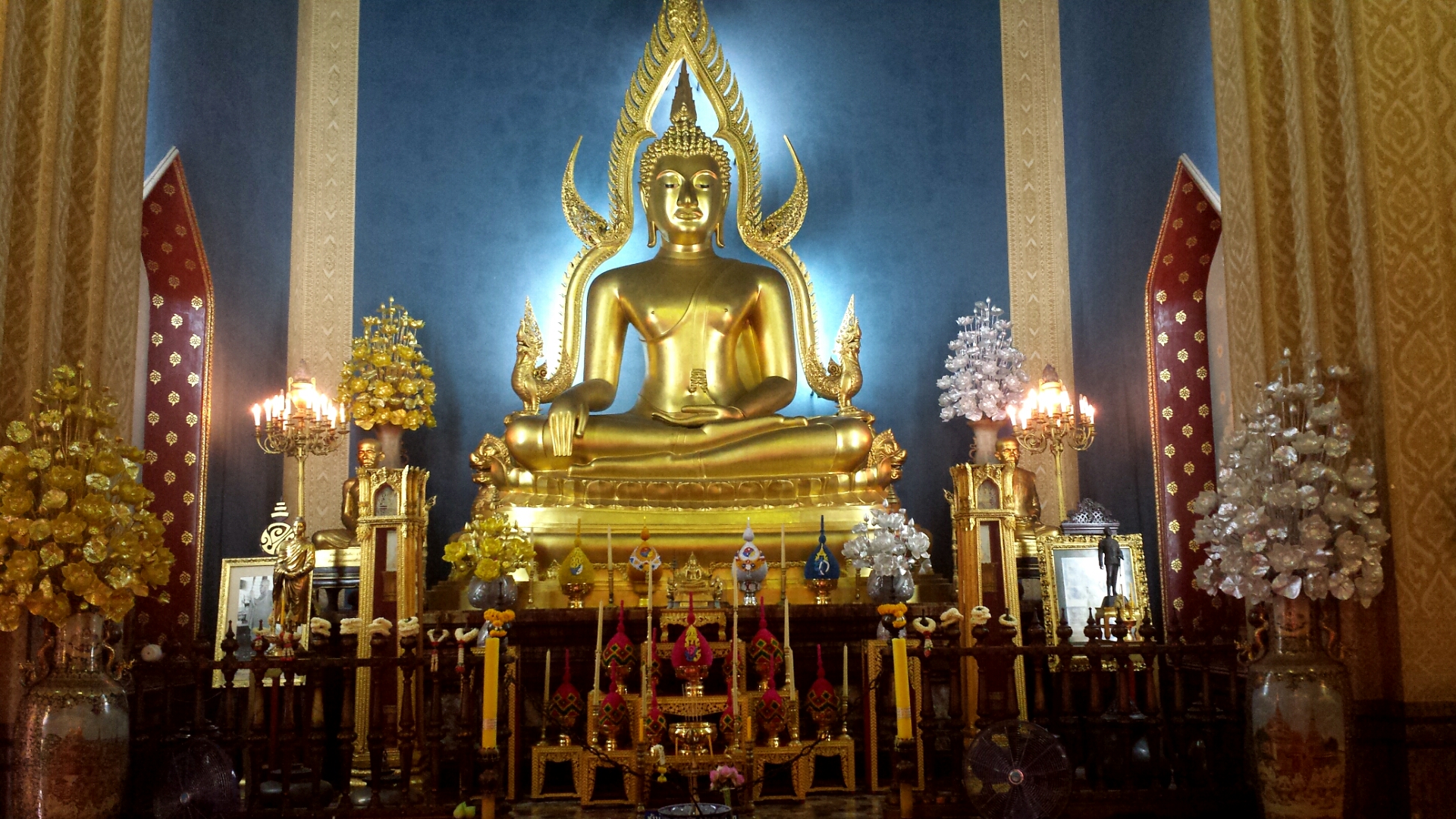
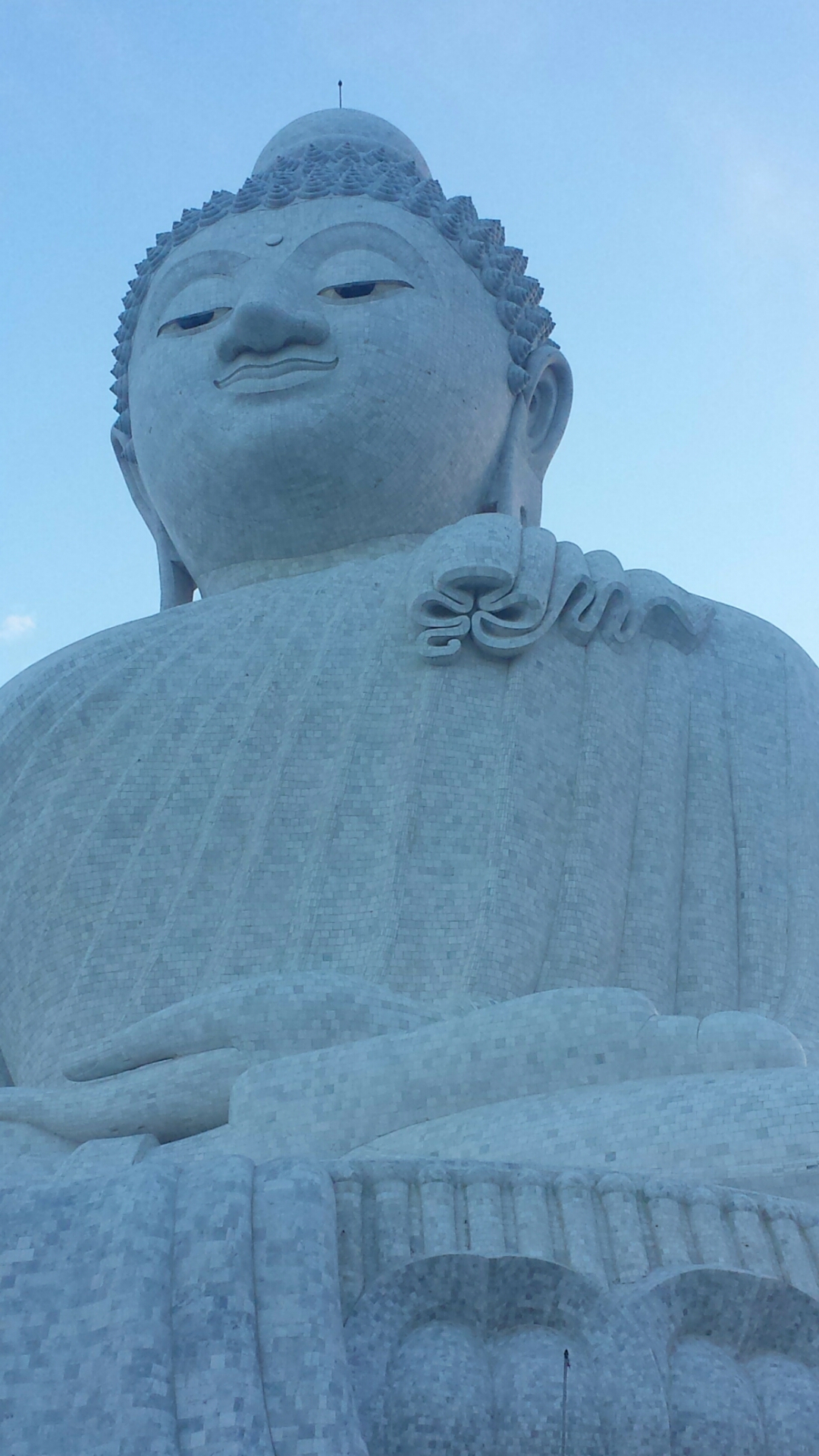
Read more: A Guide To Phuket, Thailand – What To See And Do Around The Pearl Of The Andaman Sea
Don’t Touch A Person’s Head
In Thai culture, the head is the most important and sacred part of the body, therefore it is considered extremely rude to touch the top of a person, or figurative statue, especially if it is a statue of the Buddha.


Read more: Mistakes To Avoid While Travelling
Don’t Touch A Monk
This is especially geared towards women. Women may never touch a monk or his robe while they are in monk hood. Touching a monk, as a woman, even by accident, requires the monk to complete a lengthy cleansing process. Remember that monks are not “stuck in a time warp.” Most monks use cell phones, the internet etc and after serving a set term (approximately three months), most monks will come back to regular society, start careers, and even get married.
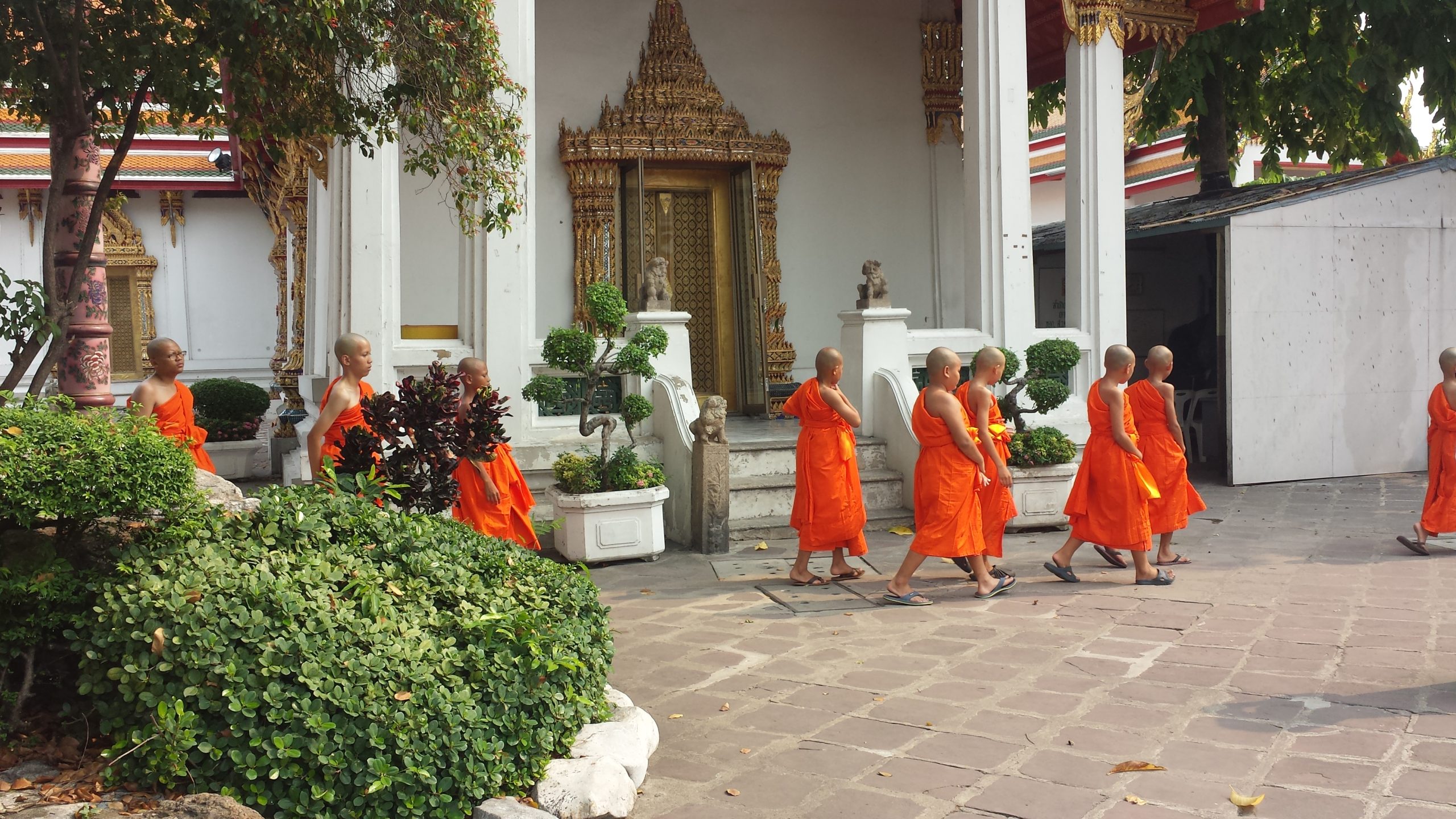
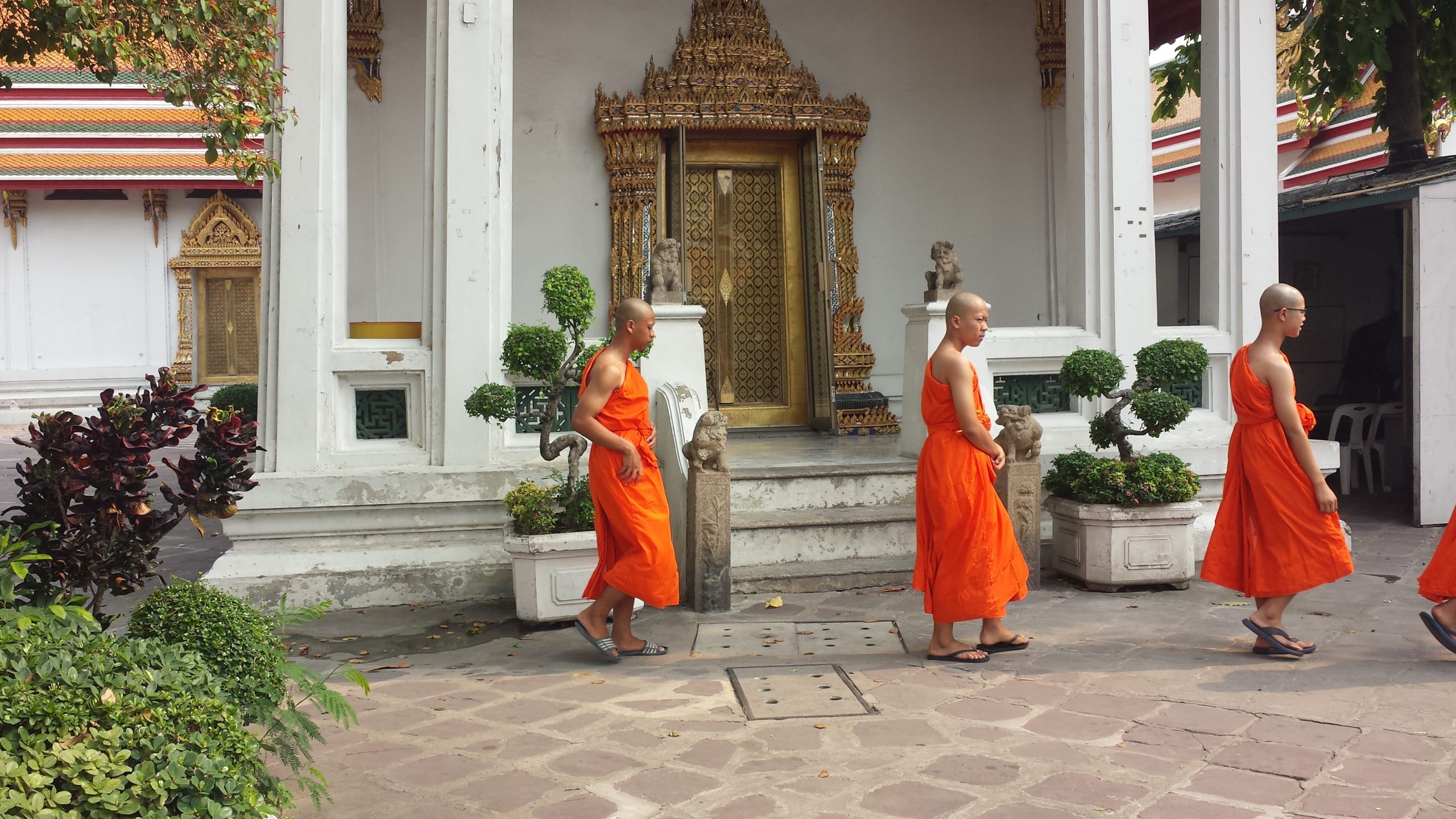
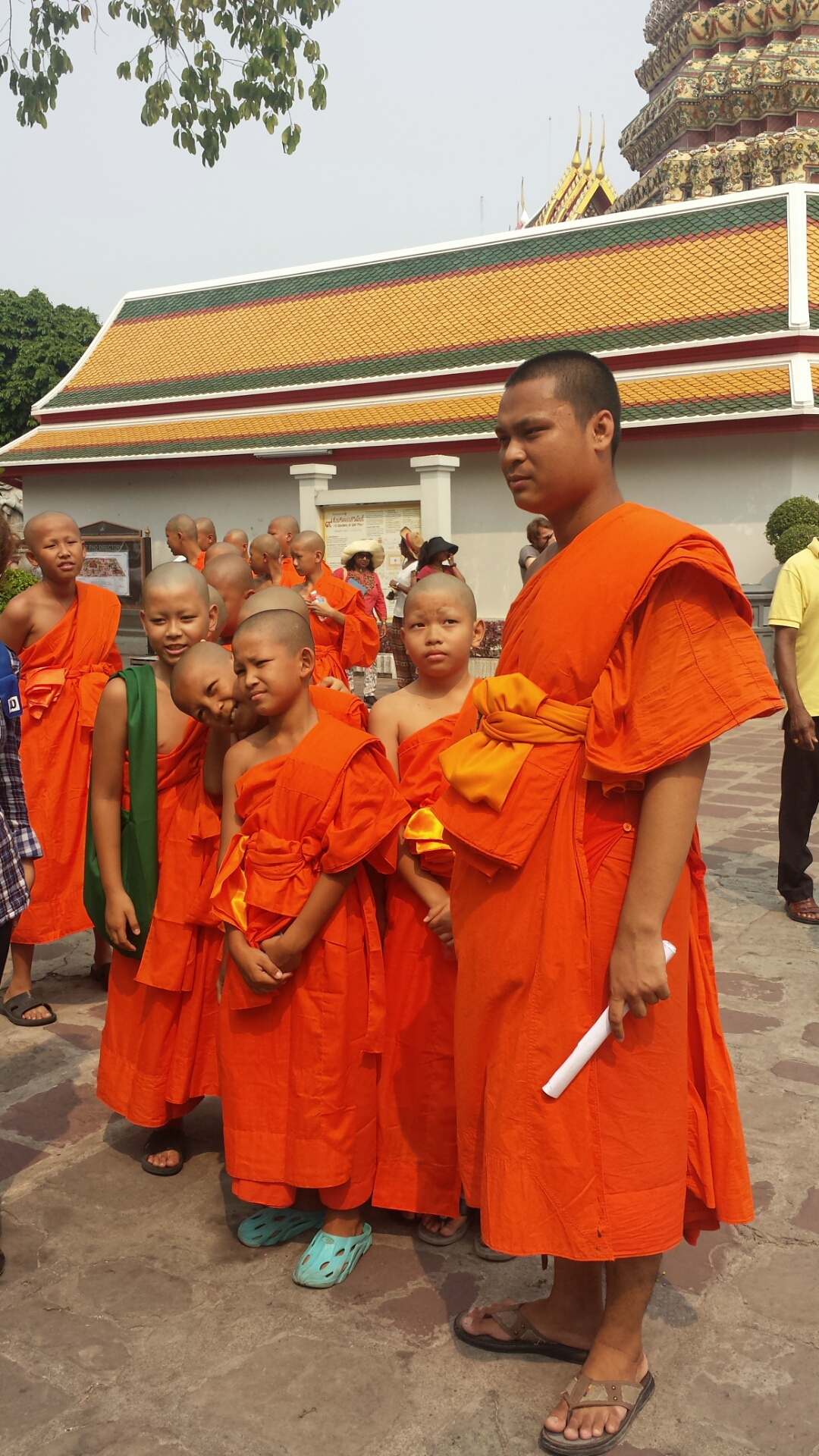
Don’t Raise Your Voice In Anger
Thai folks tend to carry themselves with a calm and fairly quiet demeanor. Confrontation, especially fueled by anger, is not something Thai people are used to. Shouting or raising your voice in anger towards a Thai person is highly looked down upon, so try to keep calm and carry on as the saying goes. If you have an issue with someone, try to address it in a calm way.
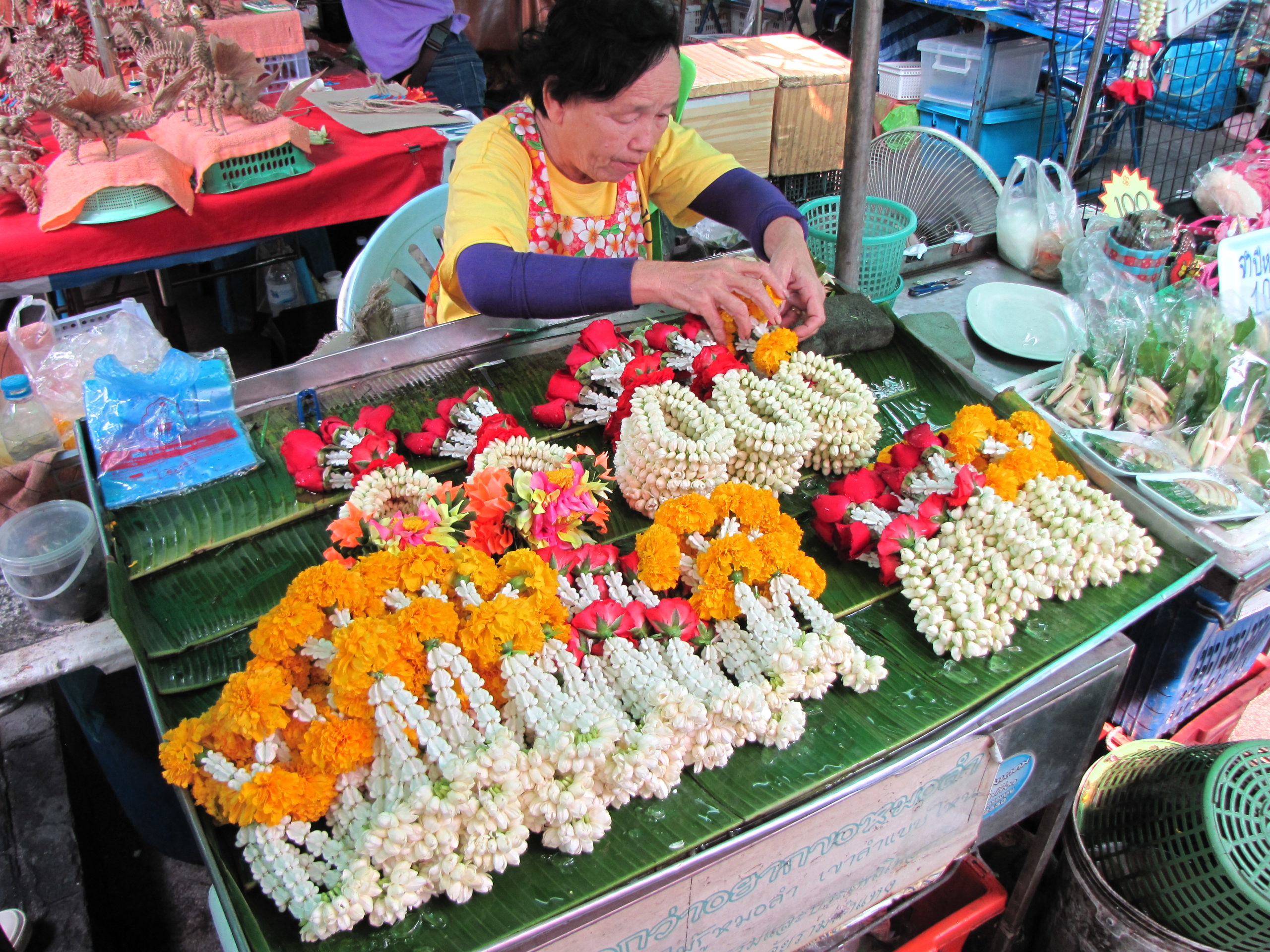
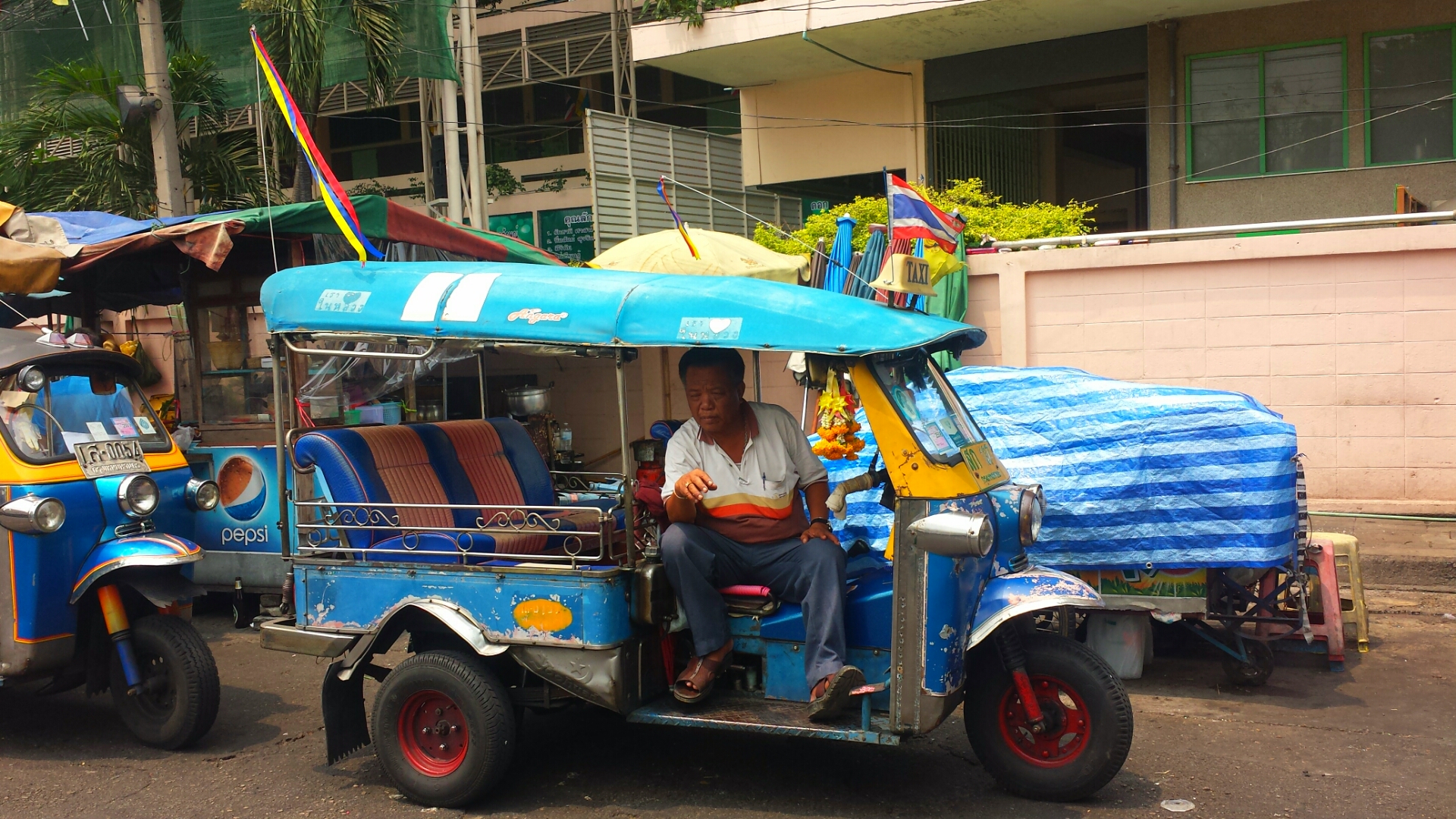
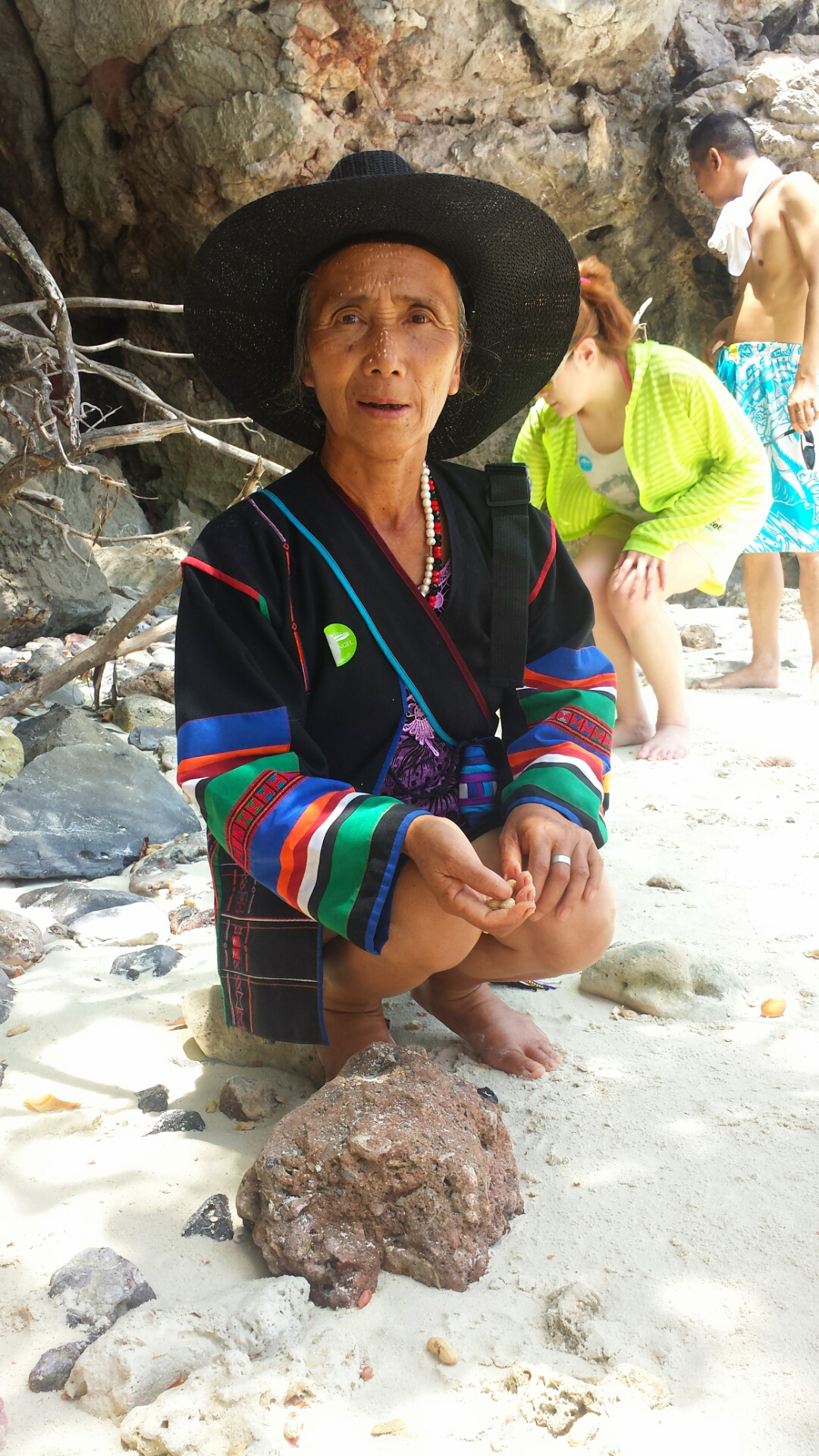
Read more: 6 Ways Travelling Will Change You
Do Negotiate With Your Tuk-Tuk Driver
Tuk-tuk drivers are notorious for taking people to undesired locations, such as a men’s tailor shop, or a jewellery store. They do this to receive a gas card and some sort of commission from the shop owners in payment for rounding up potential customers. When travelling by tuk-tuk, always negotiate a price before stepping foot inside the vehicle and be sure to firmly say that you don’t want any stops other than your final destination.

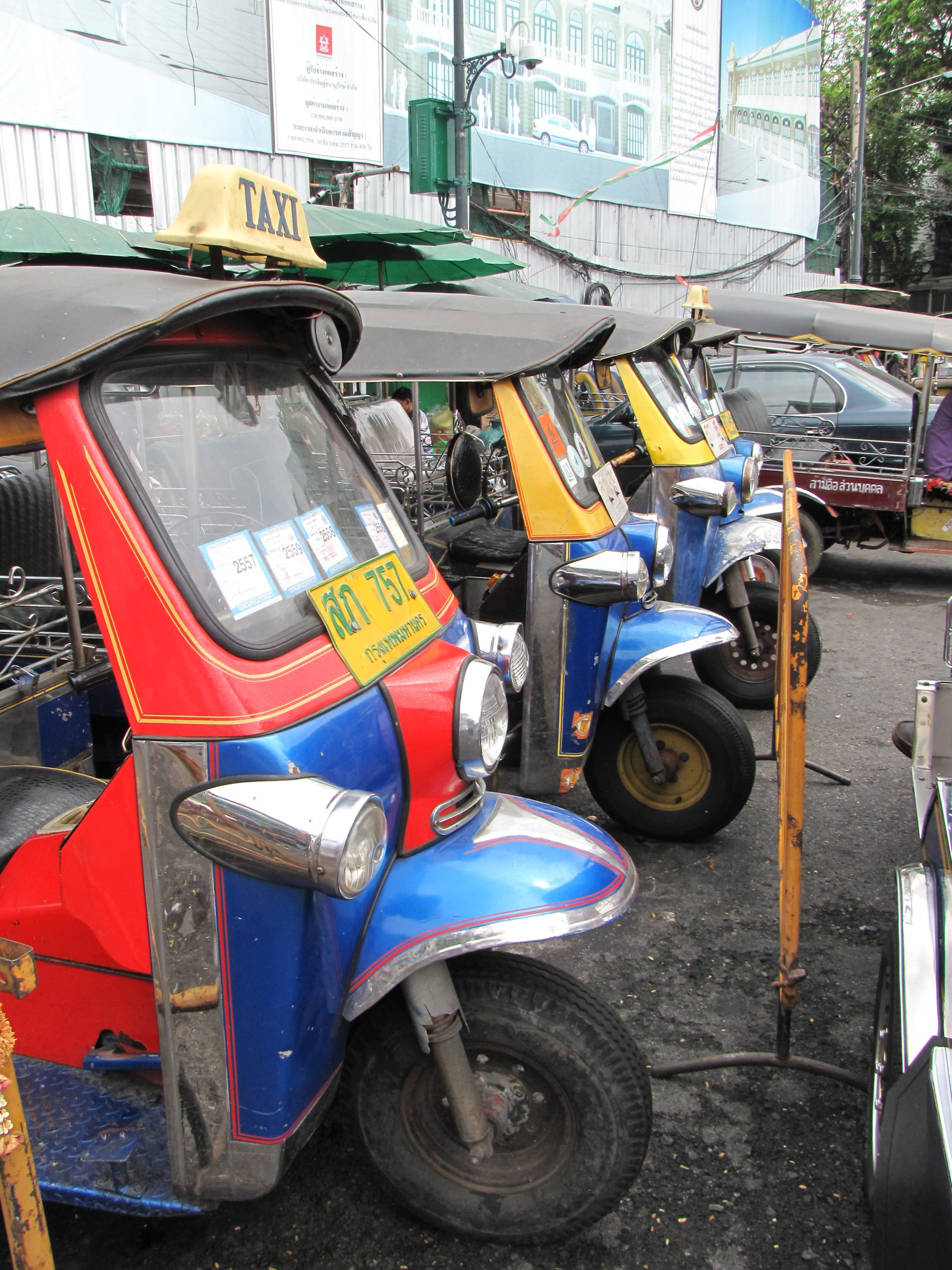
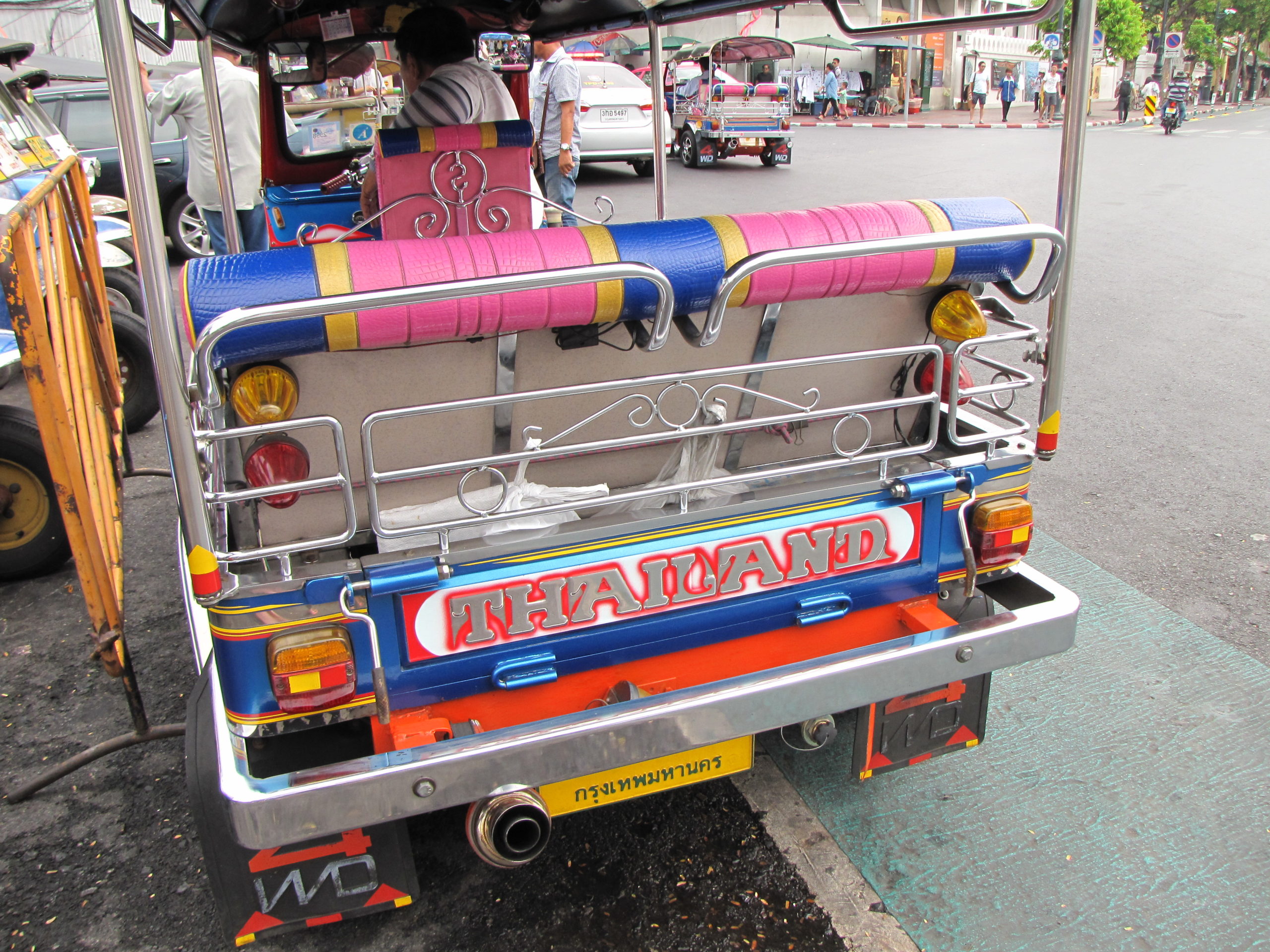

Do Not Give Money To Children Beggars
Like most countries I’ve visited that had begging children in the streets, I either look the other way, ignore them, or simply walk away after saying “no”. Don’t get me wrong, you will feel like shit telling these kids no, but you definitely do not want to encourage begging, especially with children. If kids can make easy money for themselves, or their families by begging in the streets, it can potentially discourage them from going to school, or getting a real job to help contribute to society. Don’t be afraid to ignore the begging children. In the end, it could be better for them.
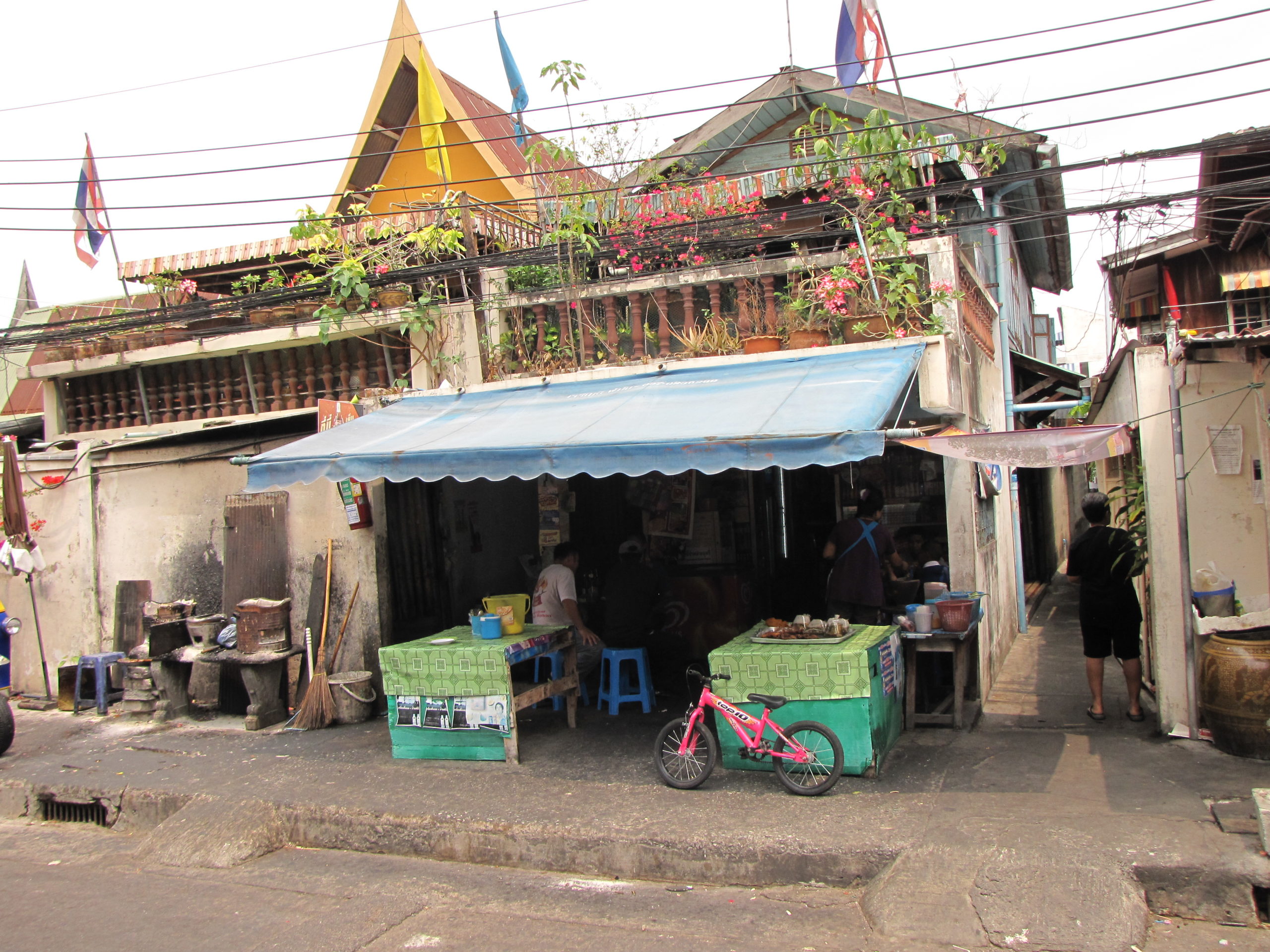
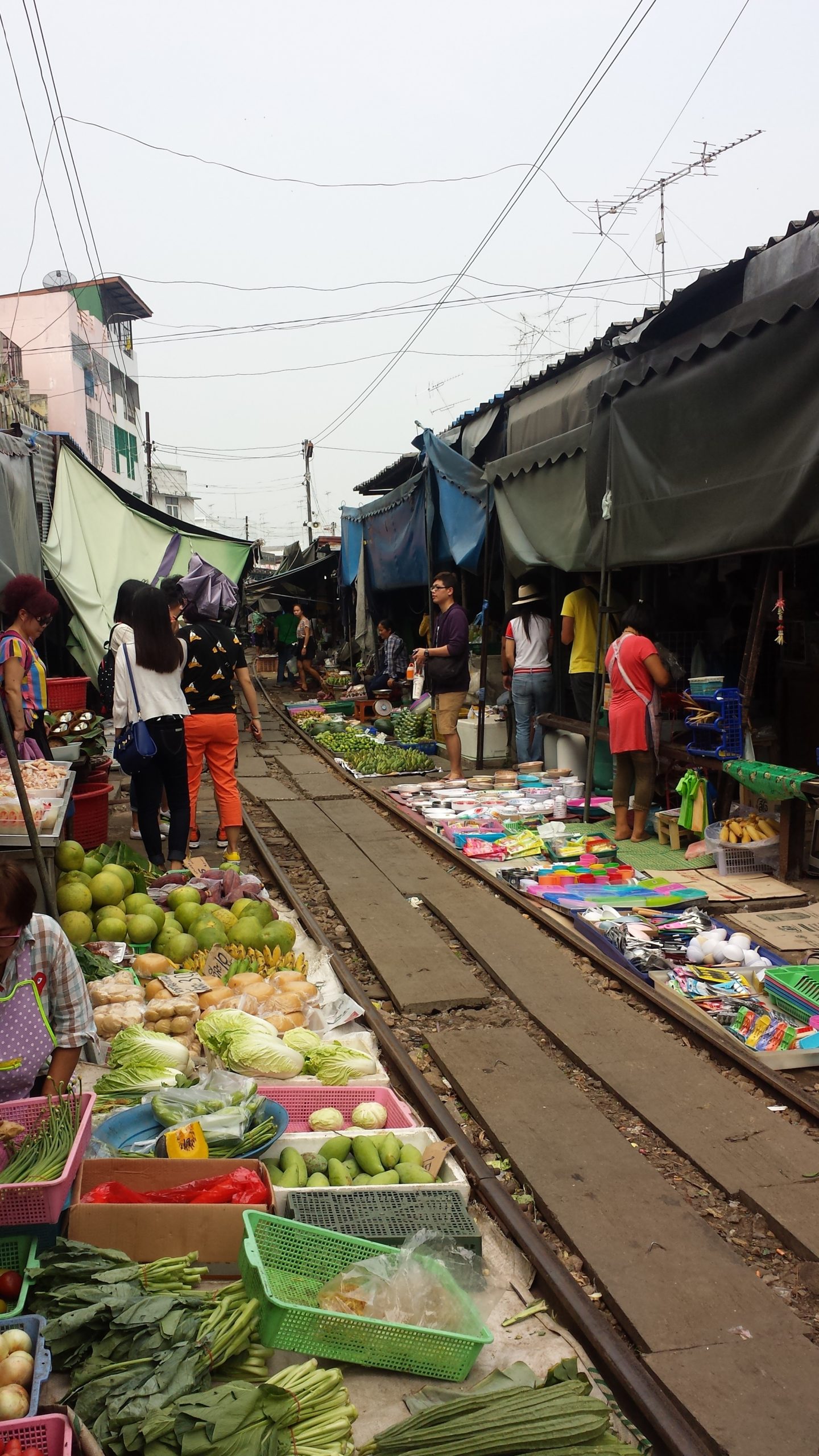
Read more: Exploring The Surrounding Islands Of Phuket By Speed Boat
Do Greet People With A Smile Or A Wai
A smile goes a long way, especially in Thailand. Another friendly way to greet someone in Thailand, is by using a wai. What’s a wai, you ask? Just as common as it would be for us in the Western world to shake hands with someone we just met, or wave to a neighbour, in Thailand the wai is the customary greeting. Even Ronald McDonald will greet people on the streets of Bangkok with a wai. I kid you not. The wai gesture dates to the 12th century and is when both hands were clasped together in front proved that you weren’t holding a weapon back then. So, how and when should you use the wai in modern days in Thailand? Here’s the Coles Notes for you:
1. Your safest bet is the versatile wai. Your fingertips will go below your chin. Make sure your palms touch together (like a praying gesture) and your elbows should be tucked into your sides. This is a wai for equals, or for those whose status you don’t yet know. Essentially, this is used the most often.
2. For slightly more respect, place your fingertips to the tip of your nose with your palms touching each other.
3. For people of high standing, or elders, place your fingertips up to your eyebrows with your palms touching each other.
4. For royalty and monks, the highest form of wai must be used. Your fingertips should be touching your hairline and would be accompanied by a bow from men, or a curtsy from women. You more than likely won’t need to use this type of wai while in Thailand, unless you come across a monk and interact with them directly.
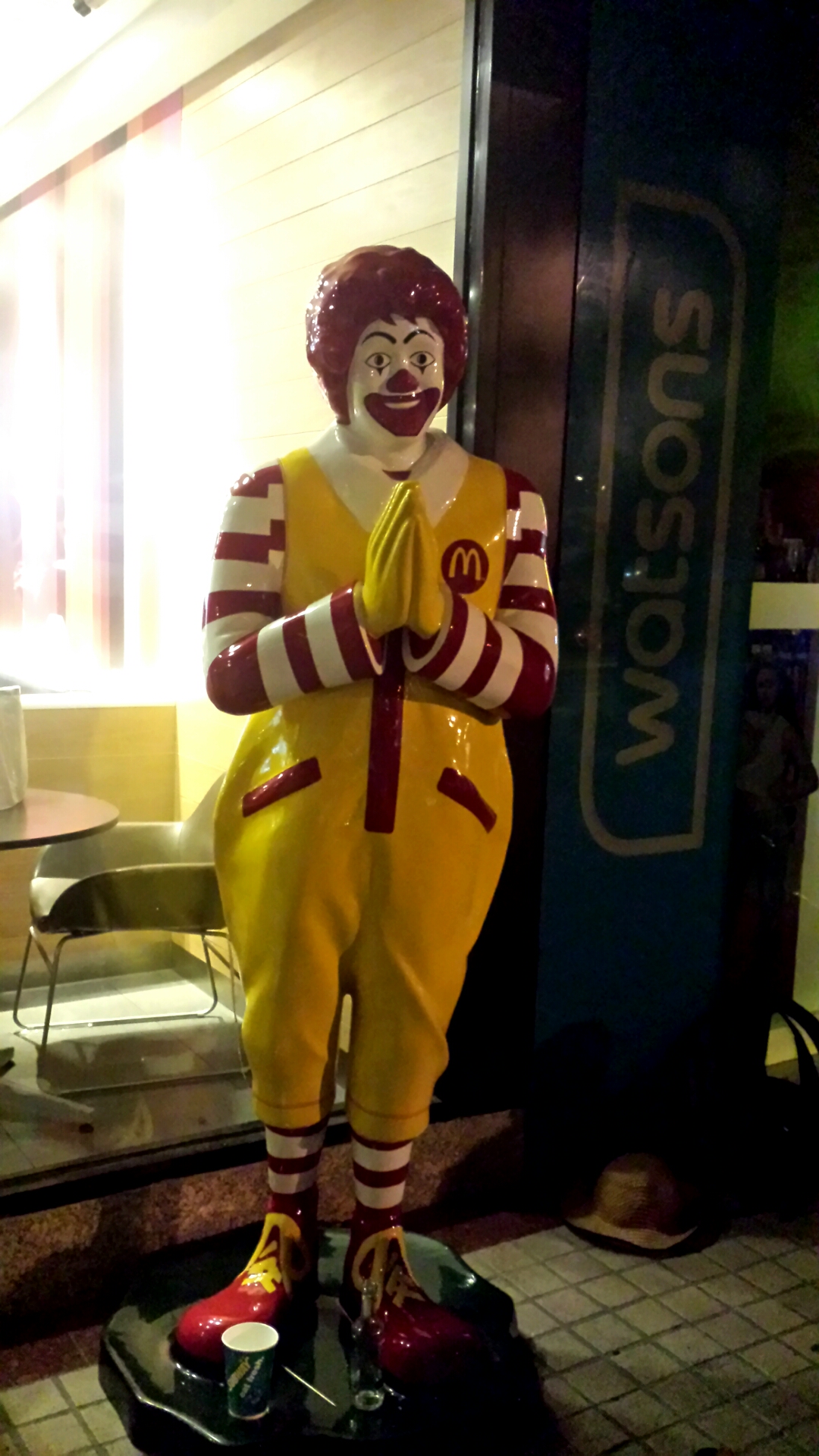
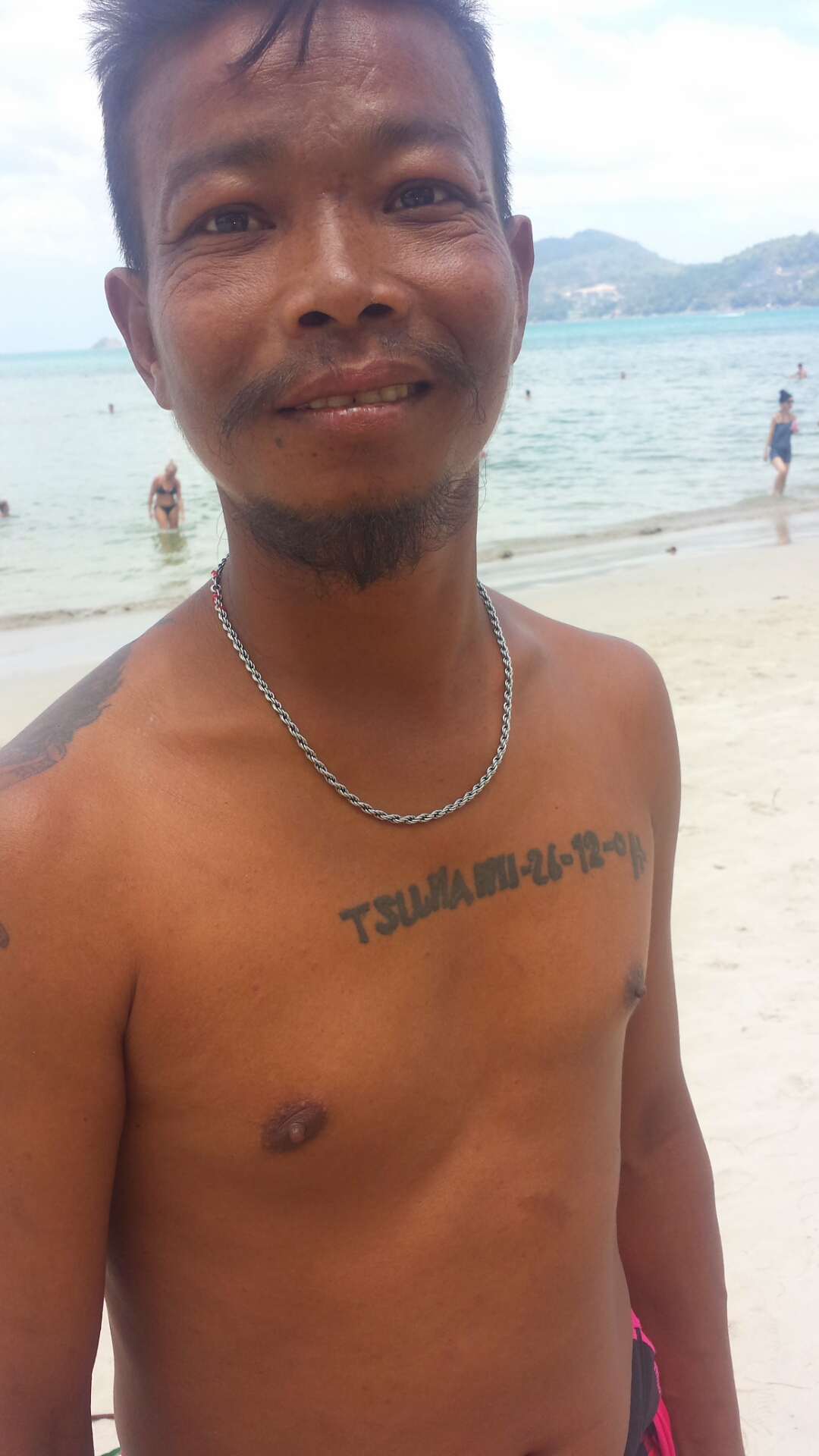
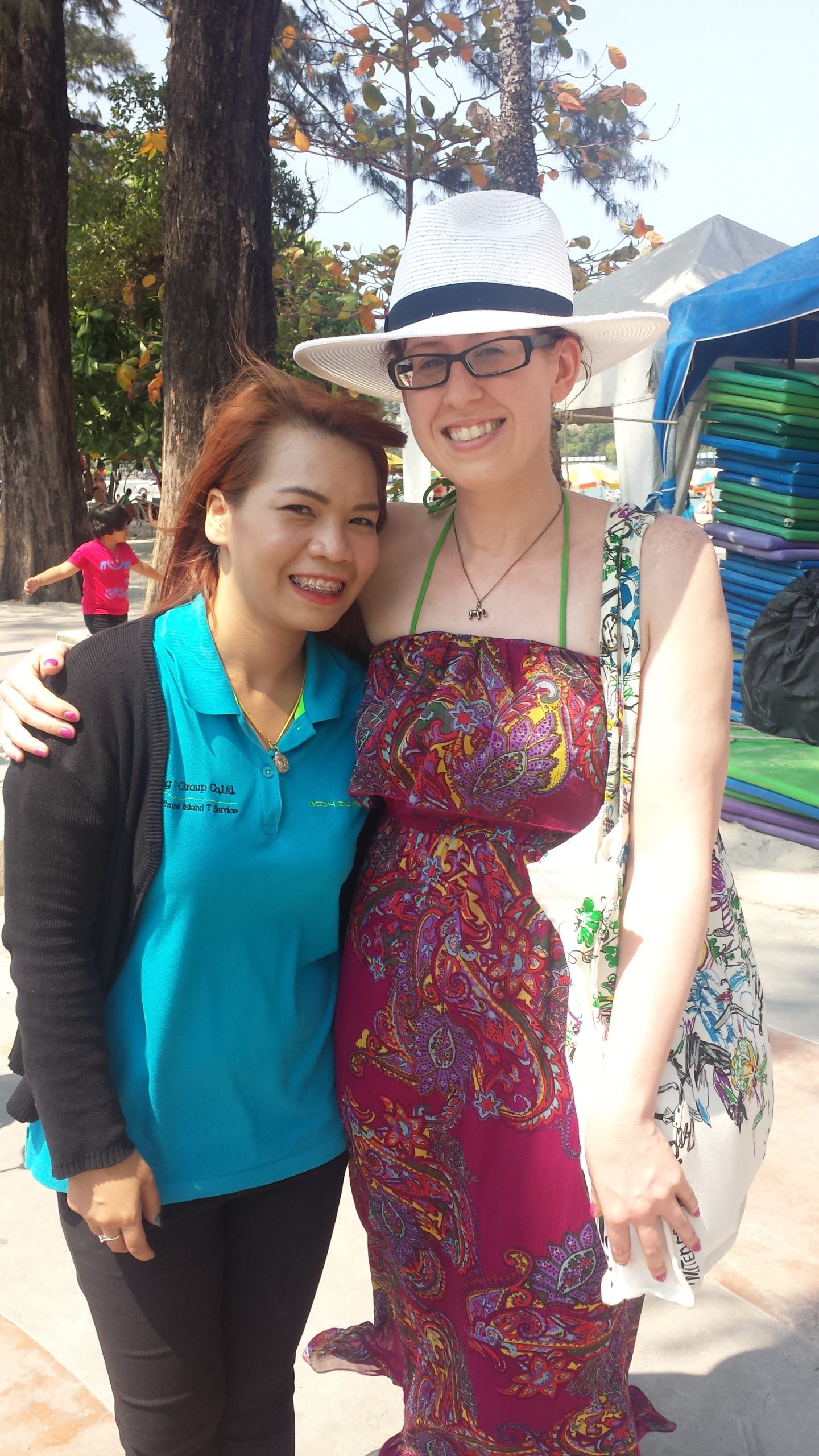

Read more: 72 Hours In Bangkok – What To Do & Places To See
Read more: Essential Things To Remember Before You Travel
Travelling to Thailand and immersing yourself within the Thai culture is one of the most rewarding parts of visiting this incredibly beautiful and diverse country. Don’t be afraid of the cultural differences if it’s your first time travelling to Thailand. Embrace them and if you have any questions, just ask the locals and they’ll more than happily give you advice.
Have you guys ever been to Thailand? If you have, did you have any issues with cultural differences? What culture shocks did you face if you’ve been to Thailand? Let me know in the comments below. xo


